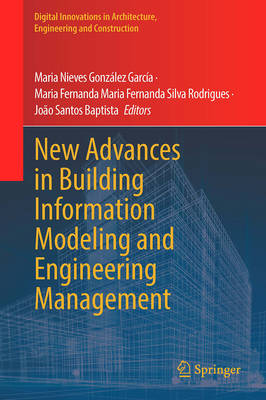
- Afhalen na 1 uur in een winkel met voorraad
- Gratis thuislevering in België vanaf € 30
- Ruim aanbod met 7 miljoen producten
- Afhalen na 1 uur in een winkel met voorraad
- Gratis thuislevering in België vanaf € 30
- Ruim aanbod met 7 miljoen producten
New Advances in Building Information Modeling and Engineering Management
Omschrijving
This book explores the latest advances in the field of building management. Several chapters use new technologies such as the BIM methodology for collecting life cycle information and managing the maintenance of existing buildings, sharing valid historical and architectural heritage data, energy analysis of building envelopes, and planning new buildings or sustainable building practices. In addition, other tools are presented that focus on improving access to BIM information, open-source governance, mobile applications to accelerate information transfer, the use of blockchain, lean design methods, and open-source software to solve critical path problems. Some contributions feature the assessment of occupational risks in construction, as it is necessary to plan preventive measures based on risk assessments integrated throughout the construction process, which is another important element for the management of this sector.
Specificaties
Betrokkenen
- Uitgeverij:
Inhoud
- Aantal bladzijden:
- 231
- Taal:
- Engels
- Reeks:
Eigenschappen
- Productcode (EAN):
- 9783031302466
- Verschijningsdatum:
- 1/08/2023
- Uitvoering:
- Hardcover
- Formaat:
- Genaaid
- Afmetingen:
- 156 mm x 234 mm
- Gewicht:
- 512 g

Alleen bij Standaard Boekhandel
Beoordelingen
We publiceren alleen reviews die voldoen aan de voorwaarden voor reviews. Bekijk onze voorwaarden voor reviews.








